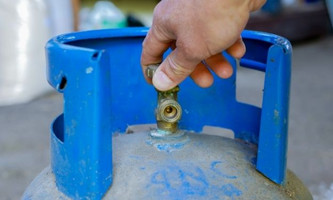Is Butane a Solvent? | What is Solvent Extraction?
Posted by USA Lab Equipment on Oct 26th 2020
One of the many common queries we get in our industry is Butane a solvent? Well, technically, Butane is an alkane hydrocarbon with the formula C4H10. It’s a gas at room temperature, but it easily liquefies. This versatile hydrocarbon has many different applications. In addition to being used as a fuel for lighters and portable stoves, butane can also be used to extract plant matter through the process of solvent extraction. To better understand the role of butane in plant extraction, continue reading.
What Is Solvent Extraction?
There are many different ways to isolate plant extracts. One of the most popular extraction processes is solvent extraction, which is admired for its ability to create larger quantities of concentrate than solventless extraction. Aptly named, the process of solvent extraction involves the use of a solvent—a substance dissolved into a liquid—to separate a specific compound from a plant. It takes place in a closed-loop extraction system, which is devoid of atmosphere. Because the extraction equipment system is closed, the solvent involved can be recovered and reused, which decreases waste. Often, the solvents used in the extraction process are hydrocarbons such as butane.
How Butane Aids Plant Solvent Extraction
In the process butane in plant extraction, it is used to dissolve the extract from the plant material. Once dissolved, the concentrate-solvent solution will enter the collection pot, where it will undergo a passive heating process. This process will purge the residual butane out of the concentrate and send it back into the solvent tank. Once the butane has been removed, the extraction technician will collect the concentrate.
One of the reasons why butane is used so frequently in solvent extraction is because of its low boiling point of 30.2° F. Due to the low boiling points of hydrocarbons such as butane, they can be easily recondensed without the use of extreme pressures. As such, large quantities of material can be extracted in a short period of time and without the use of extremely high temperatures. By avoiding high temperatures, which can degrade the final product, hydrocarbon extraction can produce more stable plant extracts.

